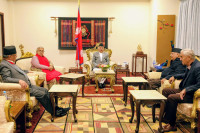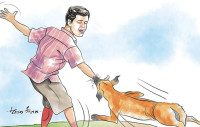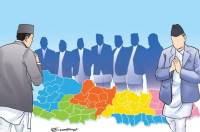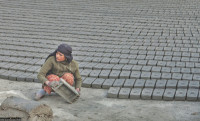Opinion
The making of Amber
While India lost a precious talent, Nepal gained by welcoming Gurung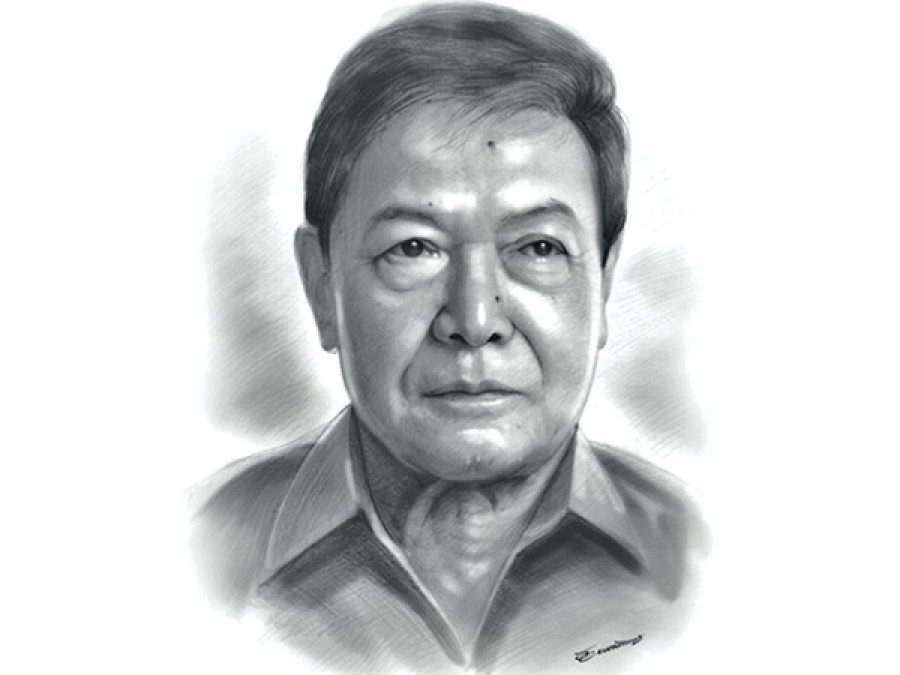
Binit Gurung
The news of the legendary musician Amber Gurung’s passing on June 7 was greeted with great sadness across the country—evident in the immediate outpourings of condolences and tributes in mainstream and social media. Born and bred in the hills of Darjeeling, Gurung however spent most of his life in Nepal. One may wonder whether Gurung would have become what he eventually became had he been born on our side of the border. History and biography are closely intertwined, writes American sociologist C Wright Mills in his book The Sociological Imagination. To quote Mills, “Neither the life of an individual nor the history of society can be understood without understanding both.” If we take one out, the other would not make much sense. Gurung’s life could perhaps be better appreciated if we take this into consideration.
The Nepali language
The hills of Darjeeling were once conquered by the Gorkhali empire back in 1780, but the territories were later ceded to the British following the Sugauli Treaty in 1816. Many Kiranti people, particularly from eastern Nepal, emigrated across the border following the state-encouraged encroachment of their ancestral lands by new settlers. Burdened by heavy taxes and the deepening penury, they were forced to find new territories to eke out a living. The beginning of labour-intensive tea plantations in the mid-19th century under the British colonial rule in Darjeeling heralded a new era of emigration from Nepal. Another crucial pull factor was the recruitment of Nepali ‘hill boys’ in the British Indian Army. Amber Gurung’s father, Ujir Singh Gurung, who originally hailed from Gorkha in Nepal, was among the ‘hill boys’ who enlisted in the British Indian Army and settled in Darjeeling after retiring.
Nepali people in Darjeeling belong to various ethnic groups primarily originating from Nepal’s hills. With migration, the mother tongues of different ethnic groups settled in Darjeeling gradually gave way to the use of one language: Nepali.
Evidently, most settlers had some familiarity with the Nepali language due to its endorsement by the state back in Nepal. In due course, Nepali settlers realised that what set them apart was the use of the Nepali language and so embraced it as an identity marker. By the time Amber Gurung was born in 1938 in Darjeeling, Nepali settlers had already begun to imagine themselves as one jati by claiming common ownership of the Nepali language.
Nepali society in Darjeeling also evolved differently from the way it did in Nepal. The state played a defining role in shaping the mould of society in Nepal at different time periods through discriminatory laws like the Muluki Ain of 1854. This was not the case with Nepali society in Darjeeling. Historian Kumar Pradhan argues that caste principles were not the basis of the emergent Nepali society in Darjeeling because it primarily consisted of non-Hindu ethnic groups. Laws like the Muluki Ain enforced by the state in Nepal was not applied in British India. Rather, what unified the Nepali settlers in Darjeeling besides the Nepali language were similar socioeconomic backgrounds and sufferings under colonialism, argues Pradhan.
Nau Lakha Tara
As the story goes, it was king Mahendra who invited Amber Gurung to Nepal. The former was keen on nurturing a monolithic nationalism in a country that was and is marked by immense diversity. As state power resided solely in the king’s hands, he had unbridled authority to distribute state offices and other privileges to like-minded people, supporters and loyalists. In fact, king Mahendra would often invite remarkable Nepali personalities from foreign lands urging them to serve their own homeland. He had his vision for Nepal and did not hesitate to reach out beyond the frontiers to find appropriate men. The invitation extended to Gurung to head the music department of Royal Nepal Academy in Nepal may be understood in this context.
However, this is not to say that Gurung composed music to suit the king and his regime. Gurung was a true musician who held immense love for Nepal and Nepali music since his early life. In the late 1950s, he instituted the Art Academy of Music in the premises of Bhanubhakta School to train aspiring musicians and promote Nepali music in Darjeeling. His first song “Nau Lakha Tara”, written by the school headmaster Agam Singh Giri, came out in 1960. The song became an instant hit. The existential angst and diasporic nostalgia depicted in the song struck a chord with Nepalis everywhere. It was also a time when the Nepali-speaking populace in Darjeeling had started to appear more vocal about their language and autonomy rights.
Whether or not the sentiments expressed in “Nau Lakha Tara” holds true for today’s Nepali diaspora in India is indeed debatable. In the 1960s, however, the song was quickly branded as ‘anti-national’ by the Indian authorities, which landed Amber Gurung into serious trouble for he then held a government job at the Folk Entertainment Unit of the Department of Information under West Bengal’s Ministry of Information. Gurung’s brush with the authorities soon forced him to resign from the job. He then moved to Kathmandu with his family accepting king Mahendra’s invitation in 1969 and soon after took Nepali citizenship.
Mills writes that when personal troubles converge to become a public issue, it can no longer be addressed by an individual from within his milieu. Rather, the resolution lies only in structural changes. In Gurung’s case, his move to Nepal was decisive in his career. Otherwise, his full potential might never have seen the light of day given how unaccommodating the Indian mainstream was and continues to be towards its citizens of Nepali origin. Nepal-India relations are often viewed from a zero-sum perspective. Nowhere was this truer than in the case of Amber Gurung. While India lost a precious music talent, Nepal gained by welcoming Gurung and allowing him to make invaluable contribution to Nepali music over the span of his illustrious career.
Gurung is pursuing a master’s in Sociology at South Asian University, New Delhi




 9.12°C Kathmandu
9.12°C Kathmandu
